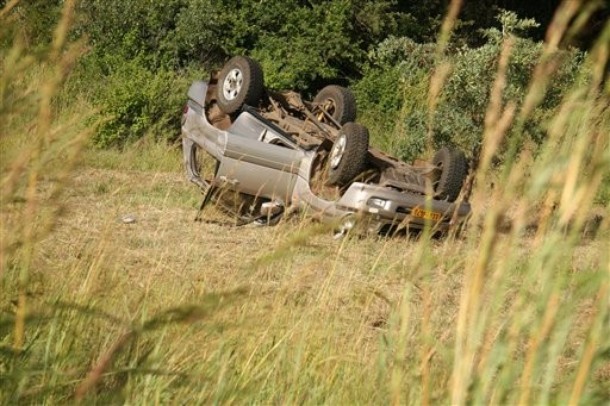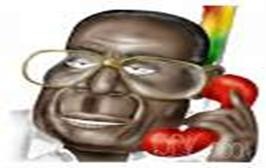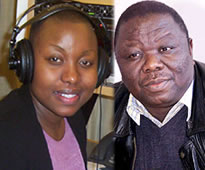Clemence Manyukwe Staff Reporter
POLICE, desperate to make terrorism charges against a group of jailed opposition activists stick, have made a potentially damaging claim in court that a South African government security agency trained Movement for Democratic Change (MDC) campaigners, including a legislator, in acts of insurgency and terror.
Thirteen opposition members, including MDC Glen View Member of Parliament (MP) Paul Madzore and his brother Solomon, are being charged under the Criminal law (Codification and Reform) Act for "training as insurgents, bandits, saboteurs or terrorists."
The investigating officer (IO) in the case, Wellington Ngena, has laid charges in which he claims that the group received military training in South Africa.
He alleged: "Between December 2006 and March 2007 in Pretoria and Orange Free State in South Africa, they attended or underwent a course of training on how to draw up detailed plans for dummy runs and decoys, creation of dilemmas for the Zimbabwe government and how to use them, thus receiving military training."
Defence lawyer, Alec Muchadehama, told The Financial Gazette yesterday that before a court appearance by his clients on Monday this week, the police had accused them of having been trained by the Scorpions.
The Scorpions are the Directorate of Special Operations (DSO) — an arm of the National Prosecuting Authority of South Africa.
The division is an elite anti-corruption unit comprising mostly intelligence, financial and forensic experts.
It has never been known to have any involvement in military training, as now claimed by police.
Muchadehama this week placed the police claims before magistrate Lazarus Murendo, but the investigating officer refused to make further testimony on the claim, saying doing so would be premature as police were still carrying out investigations.
"When I asked the IO in court if he could repeat the police accusations that the MDC members were trained by a person called Larry, and by people from the Scorpions, he refused to answer, saying that would jeopardise investigations," said Muchadehama.
An affidavit by Ngena says there was unspecified information he would not discuss in court, as doing so would scuttle continuing police investigations.
"The information that I have is very sensitive and disclosing it at this stage will seriously prejudice investigations. Disclosure of such sensitive information may result in some suspects tampering with the chain of evidence and some going into hiding," reads part of the investigating officer's affidavit.
The affidavit further states that he had applied for and had been granted a ministerial order not to divulge certain information in court.
The MDC suspects will be back in court next week for a ruling on two applications that Muchadehama has made. The first application is for the court to order police to bring from the Registrar-General's office copies of birth certificate, national identity, pictures, and the applications made to acquire the identification documents by one Peter Chindodana, whom the state claims is the MDC member that implicated the 13 suspects.
According to Muchadehama, the said Chindodana is in fact "fictitious."
The lawyer's other application is that the magistrate refers the case to the Supreme Court.
"Their detention is unlawful. When they were arrested on March 20, they were charged for various other offences, only for the police to say on April 9 that they had trained in South Africa as terrorists," Muchadehama said.
The police claim on South Africa's involvement appears to dovetail into allegations made two weeks ago by police Commissioner Augustine Chihuri, who told a caucus of ZANU PF MPs that the MDC had hatched a plan to embark on what he said were "30 days of chaos" in order to destabilise the country.
According to MPs at the meeting, Chihuri claimed the plan involved the bombing of police camps and other government installations.
The MDC denies involvement in any terror campaign. MDC faction leader Morgan Tsvangirai told reporters last week that ZANU PF had "a history of coming up with trumped up charges" to justify its crushing of dissent.
He cited the cases of PF Zapu and Zanu Ndonga, whose former nationalist leaders were at different times accused of terror plots against the ZANU PF government.
In the early 1980s, government accused PF Zapu and its former nationalist leader, Joshua Nkomo, of planning to oust the government.
In 1996, ahead of a presidential poll, Zanu (Ndonga) leader Sithole was tried for recruiting supporters for military training.
He was also accused of having personally picked the spot, on August 4, 2005, where an attack would be launched on President Mugabe's motorcade. An AK47 was produced as evidence.
Sithole was later acquitted.
Yahoo! Mail is the world's favourite email. Don't settle for less, sign up for your free account today.
















No comments:
Post a Comment